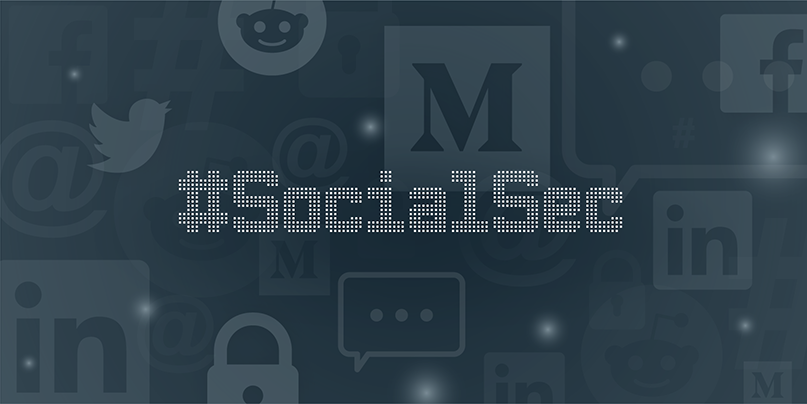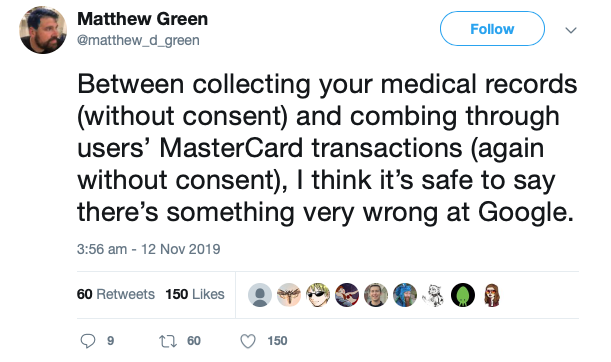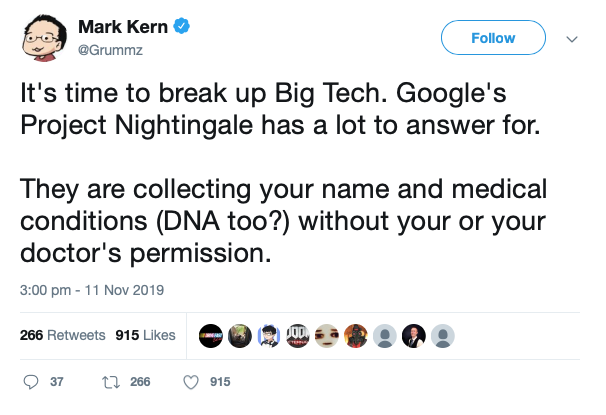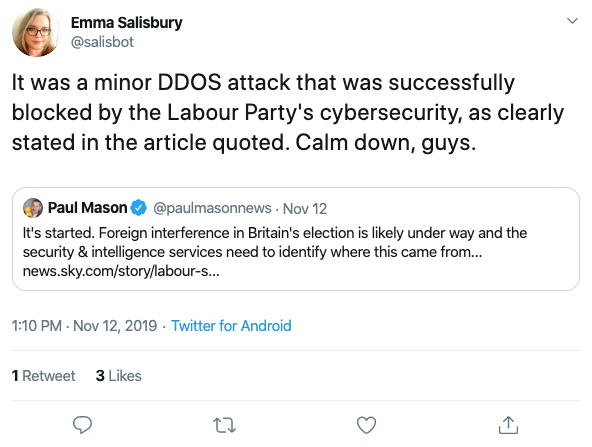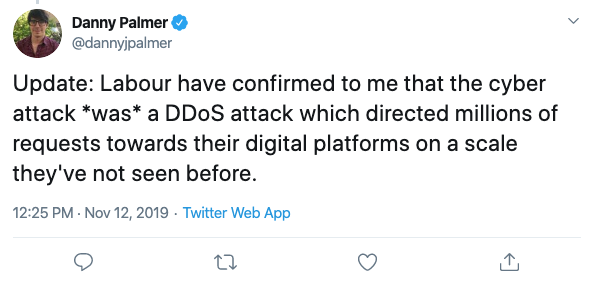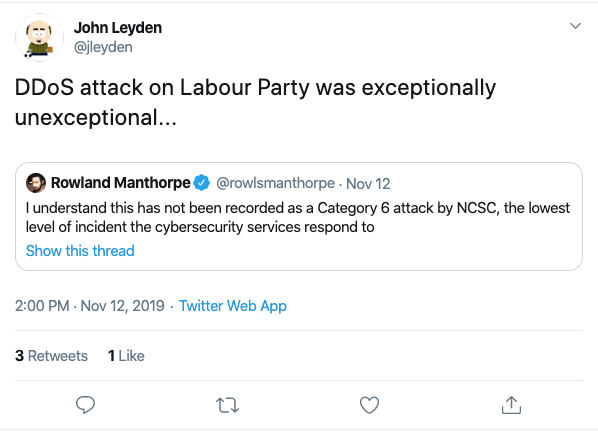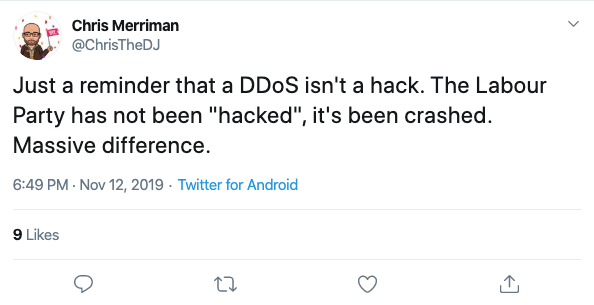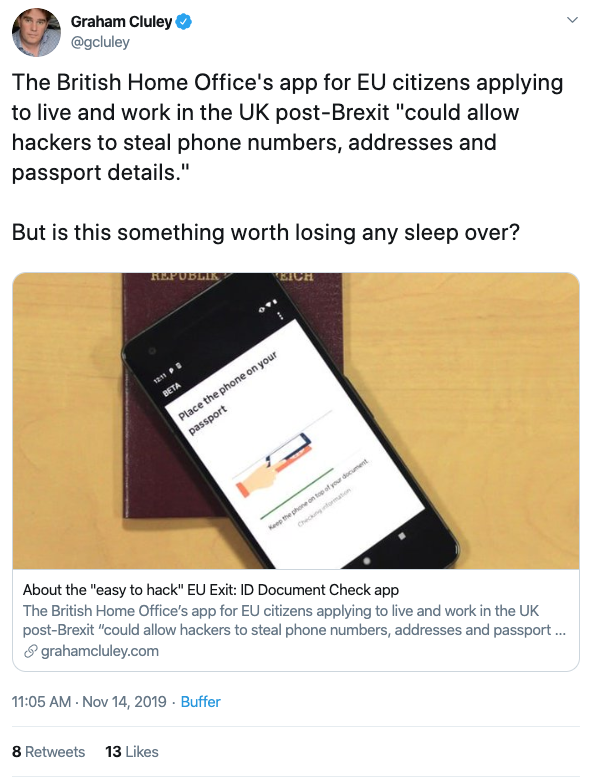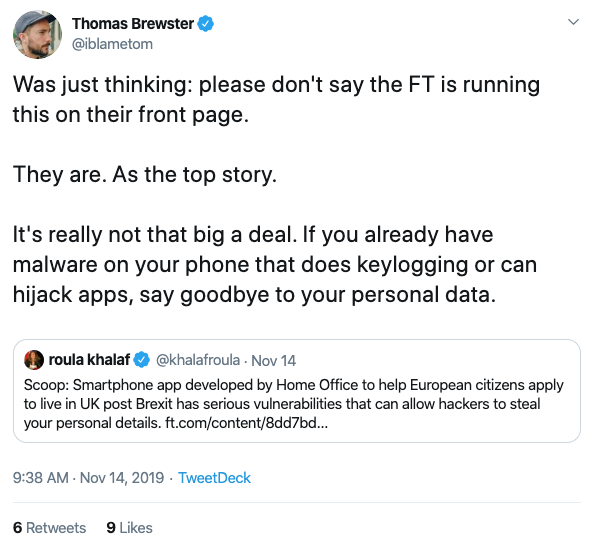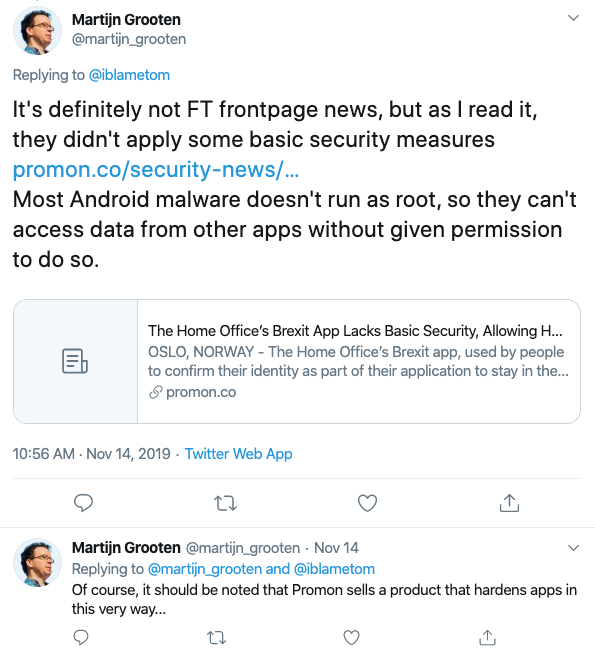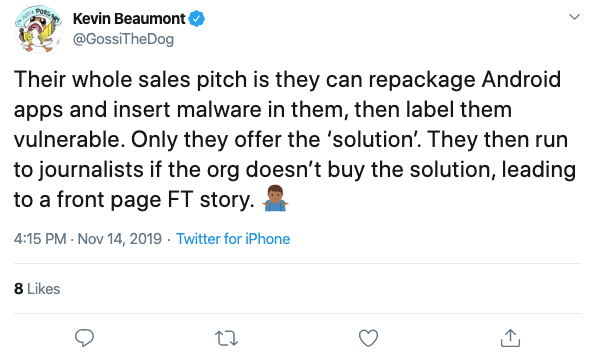Google has your medical records; a DDoS attack on the UK Labour Party; and an app that’s maybe secure after all
Concerns of privacy and growing Big Tech monopolies exploded this week, with the revelation that Google has access to your medical record.
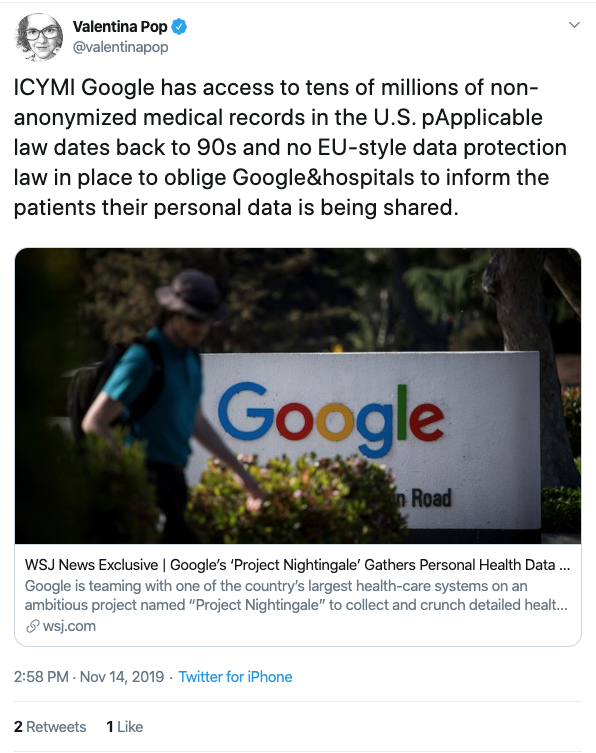
Well, maybe not your medical records, but millions of Americans may be a bit perturbed after learning that information such as their names, dates of birth, and medical conditions, are being shared with the Mountain View company.
On Monday (November 11), The Wall Street Journal reported that Google had entered into a partnership with Ascension – one of the largest non-profit healthcare systems used throughout hospitals and other facilities in 21 US states.
The collaboration, named Project Nightingale, will give a number of Google employees access to millions of patient health information in order to develop artificial intelligence (AI) and machine learning tools (ML) that can provide search capability or care suggestions.
According to a statement from Google, the company is also shifting Ascension’s infrastructure to the Cloud and helping implement G Suite in order to increase productivity and streamline the benefits that digitalization can offer the healthcare sector.
In a press release, Eduardo Conrado, executive vice president of strategy and innovations at Ascension, said: “As the healthcare environment continues to rapidly evolve, we must transform to better meet the needs and expectations of those we serve as well as our own caregivers and healthcare providers.
“Doing that will require the programmatic integration of new care models delivered through the digital platforms, applications and services that are part of the everyday experience of those we serve.”
The data sharing project is said to be compliant with the US Health Insurance Portability and Accountability Act (HIPPA), although patients and medical practitioners are reported to have been unaware of Google’s involvement in their future healthcare.
While Google’s plunge into the health industry should come as no surprise, particularly given its recent acquisition of Fitbit, a federal inquiry has nonetheless been opened.
And in other news, as election season ramps up in the UK, the Labour Party announced on Monday that it had been hit with a “very serious cyber-attack,” as stated by opposition leader Jeremy Corbyn.
The announcement, running alongside the ongoing Brexit omni-shambles and pressure on Downing Street to release findings related to potential Russian interference in the 2016 referendum, initially set every one into meltdown mode.
The distributed denial-of-service (DDoS) attack had temporarily impacted access to the main Labour Party website and various online campaign tools, having first struck on Monday evening before re-appearing again on Tuesday.
Cloudflare provides protection to Labour web services and was able to mitigate the attack.
Labour reported the incident to the National Cyber Security Centre, who said: “In terms of this incident, the Labour Party followed the correct, agreed procedures and notified us swiftly.
“The NCSC is confident the party took the necessary steps to deal with the attack. The attack was not successful and the incident is now closed.”
And keeping with Blighty, security experts have debunked the myth that the so-called EU Exit app is riddled with vulnerabilities.
The app, which has been made for EU citizens to apply for resident status in the UK ahead of Brexit, was found to have flaws that could allow an attacker to access information such as facial scans and passports, according to the story that first appeared in a front page splash by The Financial Times.
“So what the researchers are saying is that if a hacker manages to compromise your smartphone or the app then it could do something malicious,” explained Graham Cluely.
“Err, isn’t that pretty much the case with all programs and computers? If a hacker already has control of the device or has already compromised the app then all bets are off.”
We smell a marketing ploy, fertilized using Fear, Uncertainty, and Doubt [FUD].






